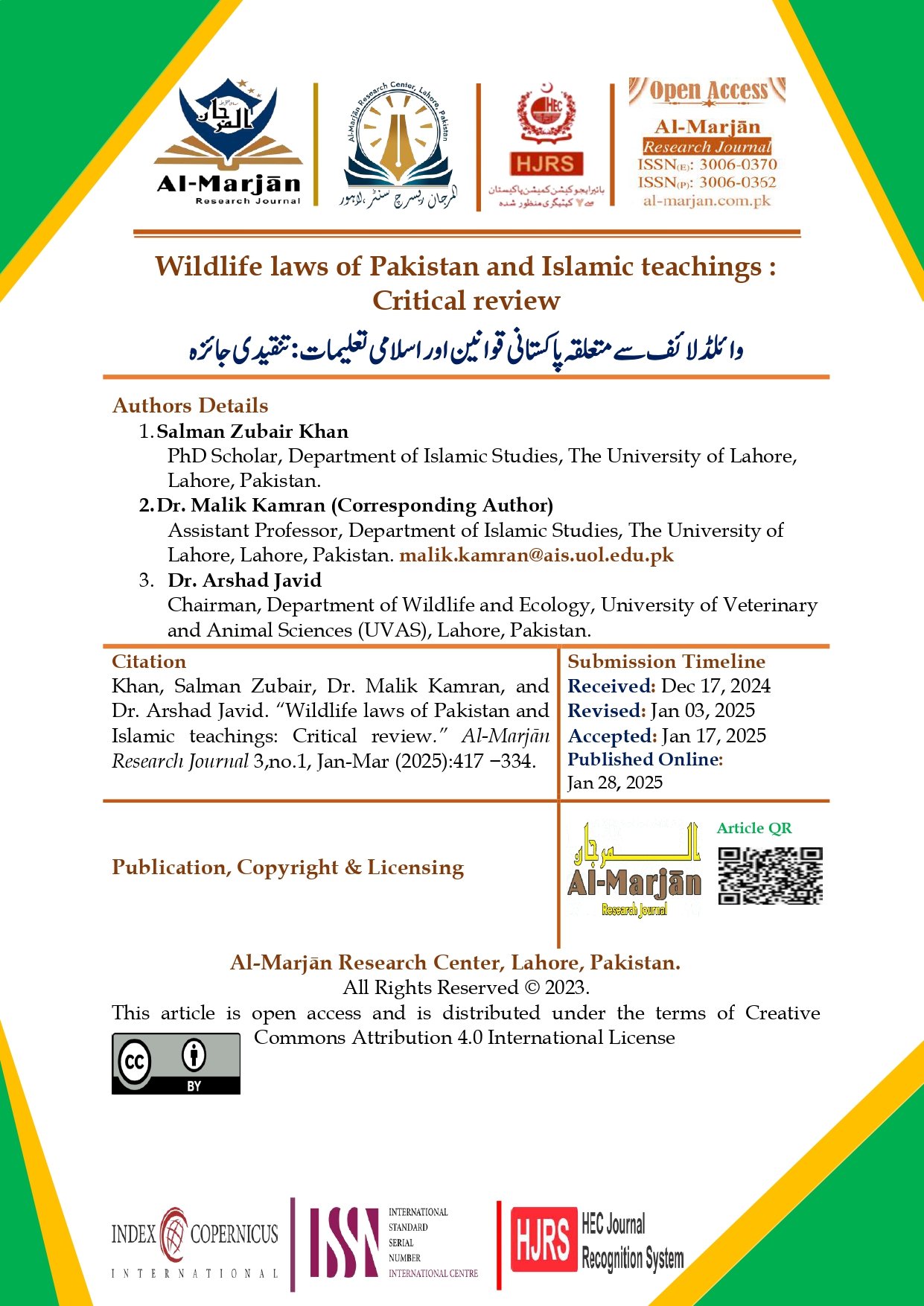Wildlife laws of Pakistan and Islamic teachings : Critical review
وائلڈ لائف سے متعلقہ پاکستانی قوانین اور اسلامی تعلیمات :تنقیدی جائزہ
DOI:
https://doi.org/10.1234/2g3gya11Keywords:
Wildlife, organizations, cooperation, state level, public awareness, population.Abstract
For the protection of wildlife in Pakistan, all four provinces have enacted their own laws that play an important role in the protection of animals, birds and natural ecosystems. In Punjab, the "Punjab Wildlife Act 1974" is in force, which regulates the breeding and hunting of rare species, but lack of implementation hinders its effective implementation. In Sindh, the "Sindh Wildlife Protection Act 2020" is a relatively modern law that takes into account international standards, but corruption and lack of resources limit its effectiveness. In Khyber Pakhtunkhwa, several national parks and conservation areas have been established under the "Wildlife Act 2015", which is a positive development, but due to lack of public awareness and lack of involvement of the local population, some projects have proven ineffective. The implementation of wildlife laws is most challenging in Balochistan, where institutional weakness and political instability hinder the implementation of these laws, although some local communities have taken some successful steps on their own. Overall, although laws for wildlife protection exist in all four provinces, there is a dire need for effective implementation, resource provision, and public awareness to secure the future of Pakistan’s wildlife. If these laws are implemented in practice rather than being limited to documents, not only will it be possible to protect rare animals and birds, but the ecological balance will also be maintained. By involving the local population in these conservation projects, they can be provided with employment opportunities, which can enable them to become wildlife guardians. In addition, cooperation with international organizations and the use of technology can improve the monitoring system. In the future, these laws must be made more comprehensive and aligned with local needs so that Pakistan's wildlife can be effectively protected. In the article under consideration, Pakistani wildlife-related laws have been reviewed in the light of Islamic teachings.






































